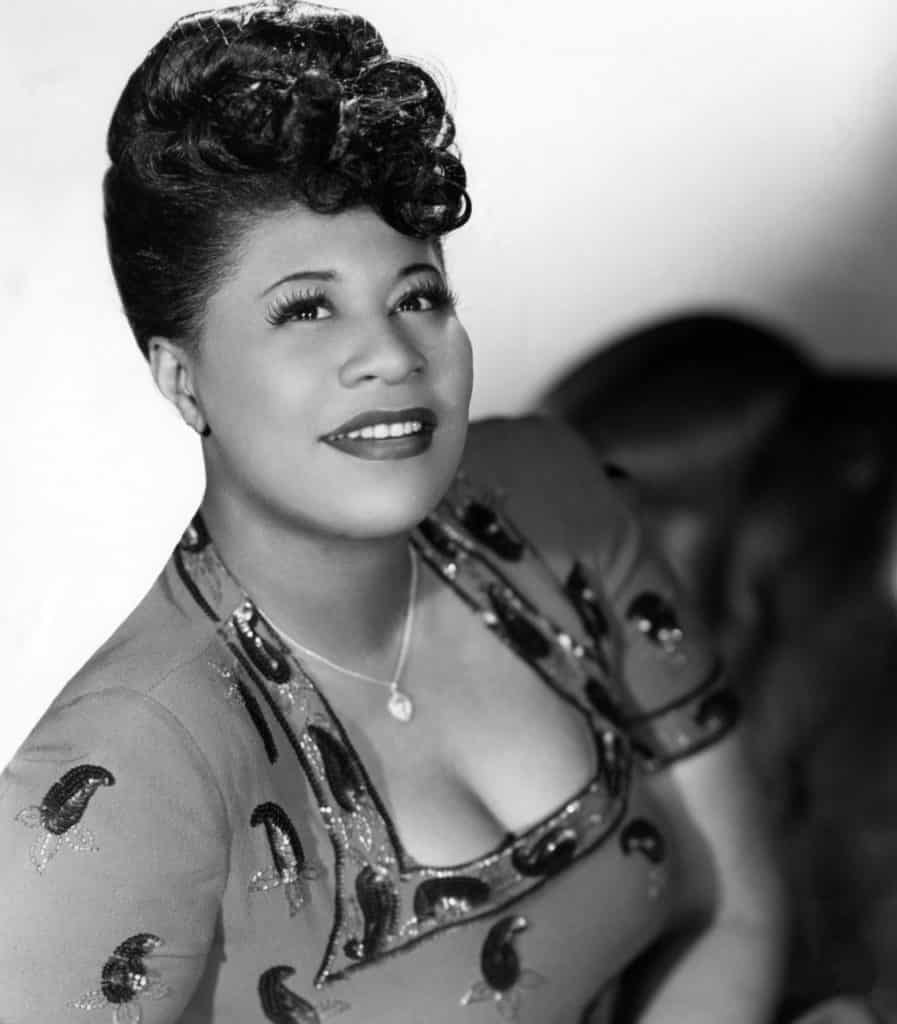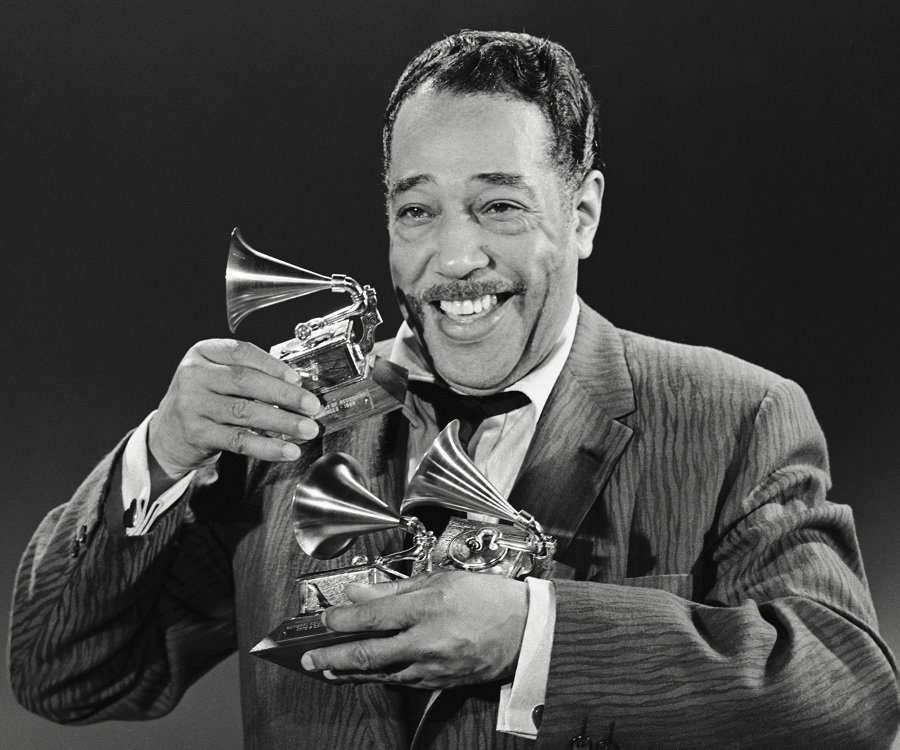The formation of jazz can be contributed to genres ragtime, blue and African American religious music, especially as some of these genres overlapped at the beginning of the 1920s. Starting in New Orleans, Lousiana, Jazz brought a more upbeat vibe, especially as brass and string instruments played by bands played a huge role. The radio began broadcasting these bands which maintained the reputation of this uptown new sound! That’s when swing jazz came onto the scene, with beats similar to the syncopation that we hear in ragtime music, but focuses on playing between the beats, the use of riffs, and call and response of the bass and drums. Swing made way for dancers to really get in the groove, which birthed the swing jazz clubs and popular dance moves.
Ella Fitzgerald, who rightfully is known as the “Queen of Jazz”, had the purest tone one could ever hear. She was also known for her stellar diction, intonation and “trumpet like” improvisation skills.

Duke Ellington was truly a jack of all trades as he stepped into the scene not just a composer, but a pianist and the leader of an amazing jazz orchestra that toured all over the world.

Another iconic female vocalist, Billie Holiday, sang with such melody and inventive timing, that captured audiences every time she opened her mouth.
Louis Armstrong is one of the most influential and popular trumpet players known to man. His amazing skills paired with his distinct voice was admirable and indescribable.
Jazz was so much more than a genre, it also influenced African Americans to react to civil rights events during the 50s and 60s. Jazz got Black people up off their feet, and formed a sense of community as White people were not allowing integration of night clubs and performance venues. Nevertheless, Jazz prevailed and transformed into one of the most listened to and honored genres within Black culture. Jazz in my opinion is the first genre where vocalists are not the only artists that were popular, but instrumentalists as well. To this day, the history and origins of Jazz are openly credited to Black people and appreciated deeply by those who are young and old!

Login to your account